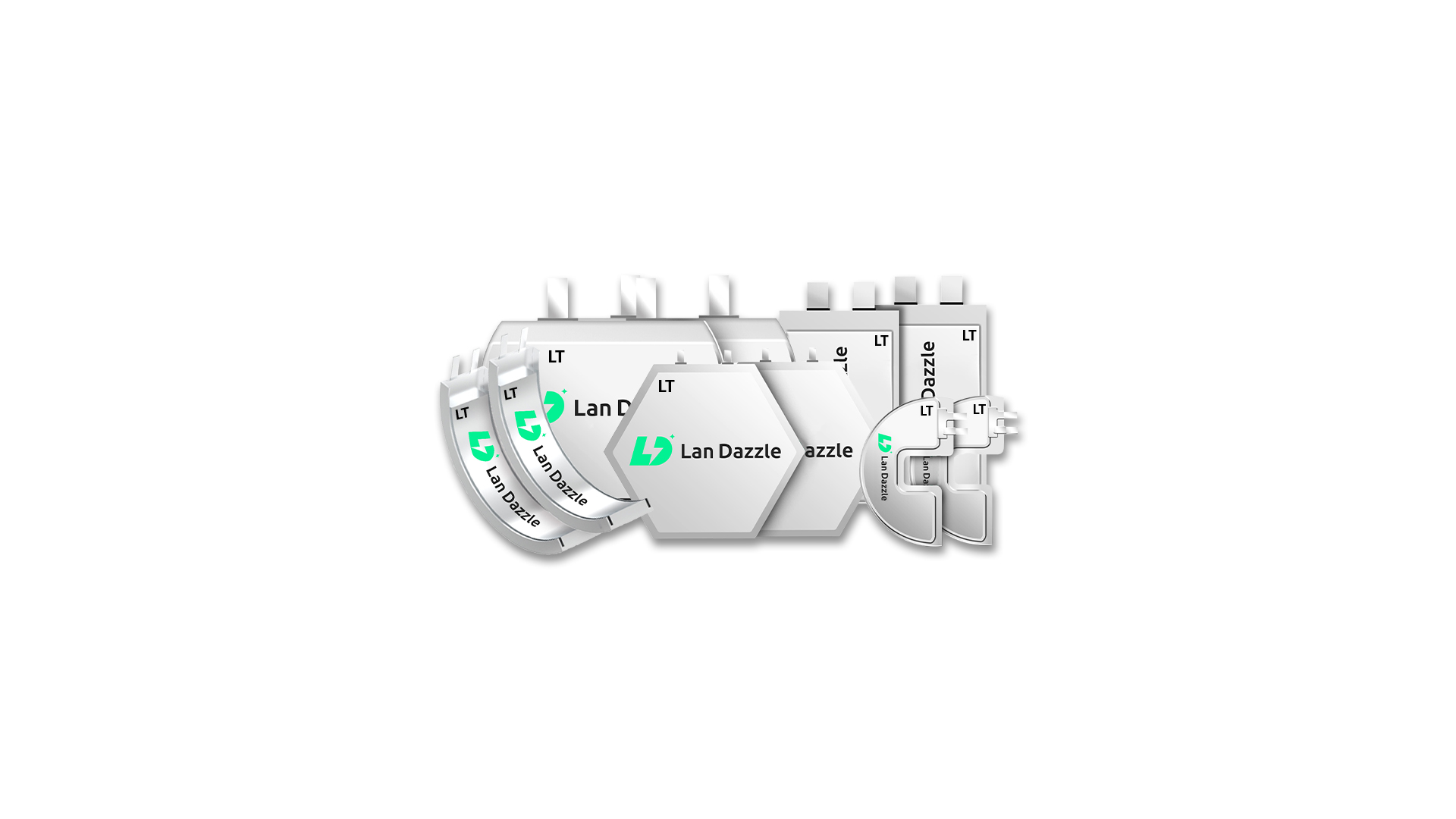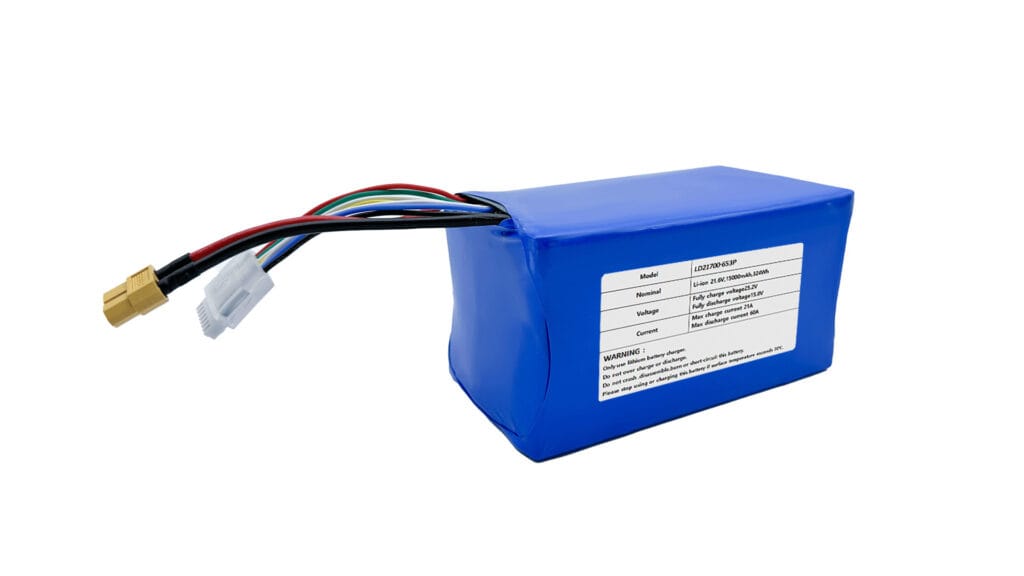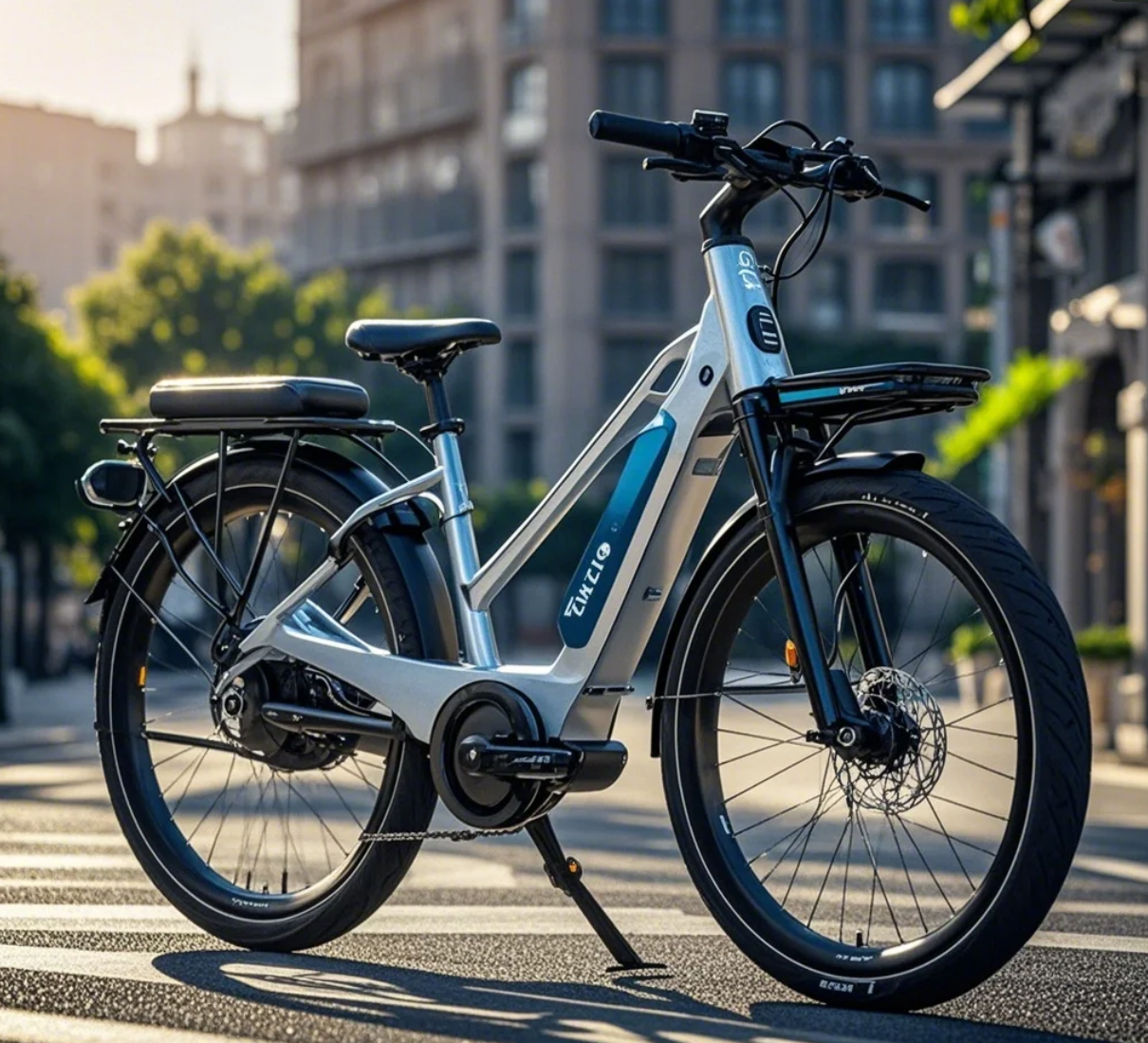In today’s hyper-competitive market, product performance isn’t just a feature – it’s the ultimate differentiator. From sleek consumer electronics to life-saving medical devices and robust industrial tools, the core functionality and reliability of countless innovations hinge on one critical component: the battery. Yet, for many product developers, the battery remains an afterthought, often leading to compromises in design, functionality, and overall user experience. The truth is, relying on generic, off-the-shelf battery solutions can severely limit your product’s true potential.
This article will delve into why custom batteries are not merely components, but strategic assets that can revolutionize your product’s performance, safety, and market competitiveness. We’ll explore the inherent limitations of standardized power sources, understand what makes custom battery solutions so crucial, and illuminate the transformative ways tailored power solutions can unlock peak performance for your next-generation products.
The Limitations of Off-the-Shelf Batteries
At first glance, opting for a readily available, mass-produced battery seems like the easy and cost-effective choice. Standardized sizes and voltages offer convenience, but this “one-size-fits-all” approach inherently comes with significant trade-offs that can hobble your product’s performance and limit innovation.
Off-the-shelf batteries are designed for broad applicability, meaning they rarely achieve optimal integration or performance for a specific device. Consider the following inherent limitations:
- Suboptimal Space Utilization: Generic battery shapes (e.g., standard cylindrical or rectangular cells) often don’t conform to unique or compact product designs. This forces designers to either compromise on the battery’s capacity or create a bulkier product to accommodate the standard shape, wasting valuable internal space.
- Compromised Performance: A generic battery isn’t optimized for your product’s exact voltage, current draw, or operational cycles. This can lead to shorter runtimes, inconsistent power delivery, slower operation, or an inability to handle peak power demands. For instance, a high-drain device might experience voltage sag, impacting functionality.
- Safety Concerns: While standard batteries have basic protection features, they may not be adequate for your product’s specific power demands, thermal profile, or environmental conditions. This can lead to overheating risks, reduced battery reliability, or even premature failure, potentially jeopardizing both the product and its user.
- Shorter Lifespan and Reduced Cycle Life: Off-the-shelf batteries are not fine-tuned for a product’s precise charge and discharge cycles, or its typical operating temperature range. This can accelerate degradation, leading to a significantly shorter battery lifespan and requiring more frequent replacements, increasing the total cost of ownership (TCO) for end-users. Studies show battery life is a top complaint for consumers of electronic gadgets, directly impacting user satisfaction.
- Lack of Product Differentiation: In a crowded market, generic components limit your ability to innovate. If your product’s power source is the same as everyone else’s, it’s harder to offer unique features or a superior experience that sets you apart.
These compromises mean that while an off-the-shelf battery might get your product powered, it won’t allow it to reach its full potential, potentially leading to lower customer satisfaction and hindering your competitive edge.
What Are Custom Batteries and Why Do They Matter?
Unlike their generic counterparts, custom batteries are tailored power solutions meticulously engineered to meet the precise, unique requirements of a specific product. This isn’t just about choosing a different size; it’s a holistic design and manufacturing process that considers every aspect of your product’s power needs.
A custom battery is typically comprised of several key elements:
- Battery Cells: The fundamental energy storage units, chosen based on chemistry (e.g., Li-ion custom battery, lithium polymer, LiFePO4, NiMH) to match required energy density, power output, and safety profiles.
- Battery Management System (BMS): The “brain” of the battery pack. A custom BMS is crucial for monitoring voltage, current, temperature, and overall battery health. It provides critical protections against overcharge, over-discharge, over-current, and short circuits, while also managing cell balancing for optimal performance and longevity.
- Housing/Enclosure: Designed to fit perfectly within the product’s internal space, often in unique form factors like L-shapes, curved designs, or ultra-thin profiles. This can involve specialized materials for environmental protection (e.g., water resistance, vibration dampening).
- Connectors and Wiring: Customized to integrate seamlessly with the product’s electronics, ensuring reliable and efficient power transfer.
The development of bespoke battery solutions is a collaborative process between product developers and expert battery engineers. This partnership ensures that every aspect, from cell selection to BMS programming and mechanical integration, is optimized for the specific application.
Why do they matter? Because they move products from “good enough” to “optimal.” The global custom battery pack market is projected to grow significantly, reaching an estimated $33.10 billion by 2029, reflecting an increasing industry recognition of the strategic value of tailored power solutions. This growth is driven by the increasing demand for portable electronic devices, electric vehicles, and battery-powered industrial automation systems, all of which benefit immensely from specialized power sources.
Key Ways Custom Batteries Enhance Product Performance
The true power of custom battery solutions lies in their ability to directly address and overcome the limitations of generic options, leading to significant enhancements across multiple facets of product performance.
1. Optimized Energy Density and Power Output
One of the most critical advantages is the ability to precisely match the battery’s energy characteristics to the product’s demands. This means:
- Tailored Power Delivery: Custom battery engineers select specific cell chemistries and configure them (in series for higher voltage, parallel for higher capacity) to deliver the exact voltage and current required by the device. For products needing bursts of high power (like power tools or drones), the battery can be designed for a high discharge rate. For devices requiring long, consistent power (like remote sensors), the focus shifts to maximizing capacity and minimizing self-discharge.
- Maximizing Energy Storage: By designing the battery pack to the precise internal dimensions of the product, every available cubic millimeter can be utilized for energy storage. This allows for a significantly higher energy density within the product’s existing footprint, translating directly to longer runtimes or enabling more power-intensive features.
2. Precision Fit and Unique Form Factor
Generic batteries often dictate product design, but custom battery design liberates it.
- Design Freedom: Engineers can design the product first, then create a battery to fit, rather than the other way around. This opens up possibilities for revolutionary product shapes – ultra-thin laptops, curved wearables, or uniquely contoured medical devices.
- Miniaturization and Weight Reduction: A perfectly integrated custom battery allows for more compact and lighter products. By eliminating wasted space and optimizing materials, the overall weight can be reduced, crucial for portable devices and applications like drones where every gram matters. Imagine a smart ring, or a pair of smart glasses, where the battery is seamlessly integrated into the unique contour of the device, making it virtually imperceptible.
3. Enhanced Safety and Reliability
Safety is paramount, especially for devices in sensitive applications (e.g., medical, aerospace). Custom batteries significantly improve safety through:
- Advanced Battery Management System (BMS): A custom-designed BMS goes beyond basic protection. It’s fine-tuned to monitor and manage the battery precisely according to the product’s operational profile. This includes highly accurate cell balancing, robust overcharge protection, over-discharge protection, short-circuit protection, and precise temperature protection. This proactive management prevents thermal runaway and extends the battery’s health.
- Robust Mechanical Design: Custom battery packs can be engineered with specialized enclosures and potting materials to withstand specific environmental challenges, such as vibration, shock, extreme temperatures, humidity, or dust (e.g., with specific IP ratings). This ensures product reliability even in harsh conditions.
- Regulatory Compliance: Custom solutions can be designed from the ground up to meet stringent industry-specific safety standards and certifications (e.g., UL, CE, UN38.3), which is often critical for market entry and consumer trust.
4. Extended Lifespan and Cycle Life
A longer-lasting battery means a longer-lasting product and a better return on investment.
- Optimized Charging/Discharging: The BMS in a custom battery can be programmed to manage charge and discharge cycles optimally for the product’s usage patterns, reducing stress on the cells and dramatically increasing the cycle life.
- Superior Thermal Management: Overheating is a primary cause of battery degradation. Custom solutions incorporate tailored thermal management strategies (e.g., heat sinks, specific cell spacing, active cooling) to maintain optimal operating temperatures, ensuring consistent power and extending longevity. An IoT device in a remote location, for example, designed for 5+ years of operation without battery replacement, relies on a custom battery solution with ultra-low self-discharge and robust thermal performance.
5. Improved User Experience and Brand Perception
Ultimately, superior battery performance directly translates to a better user experience and stronger brand loyalty.
- Uninterrupted Use: Longer runtime means less frequent charging, enhancing user convenience and minimizing downtime.
- Consistent Performance: Reliable power delivery ensures the product operates as expected, preventing frustrating slowdowns or unexpected shutdowns.
- Enabling New Features: A custom battery can provide the power profile necessary to enable advanced features or entirely new product categories that would be impossible with generic power sources. This directly contributes to product innovation and differentiation.
Real-World Impact: Applications and Case Studies
The advantages of custom batteries are evident across a diverse range of industries, driving innovation and superior performance.
- Consumer Electronics:
- Wearables (Smartwatches, AR/VR Headsets): These devices demand ultra-compact, lightweight, and often uniquely shaped batteries to fit ergonomic designs. Custom batteries enable all-day use and sleek aesthetics. A revolutionary slim device, like a next-gen smartwatch, often owes its form factor and extended battery life to an ultra-thin, custom-shaped LiPo battery.
- Compact Audio Devices & Specialized Cameras: Requiring high energy density in tiny spaces for extended playback or recording times.
- Medical Devices:
- Portable Diagnostic Tools (e.g., portable ultrasound, ECG monitors): Demand high reliability, long operating hours between charges, and often specific certifications. Custom solutions ensure power consistency for critical functions.
- Implantable Devices (e.g., pacemakers, neurostimulators): Require extreme longevity, absolute reliability, and biocompatible designs, often with specialized chemistries. Custom batteries are indispensable here, with a focus on years of consistent, low-power discharge.
- Wearable Health Monitors: Need lightweight, flexible batteries with precise power delivery for continuous data collection. A medical device company achieving FDA approval for a new portable diagnostic tool often cites the custom battery’s ability to meet stringent safety and performance requirements as a key enabler.
- IoT Devices:
- Smart Sensors & Asset Trackers: Many IoT applications require years of maintenance-free operation in varied environments. Custom batteries with ultra-low self-discharge rates, precise voltage regulation, and robust construction allow devices to be deployed in remote locations, collecting data continuously without frequent battery replacements.
- Smart Home Devices (Locks, Thermostats): Need reliable, long-lasting power in discreet form factors.
- Industrial & Robotics:
- Automated Guided Vehicles (AGVs) & Industrial Robotics: Require high power output for motors, fast charging capabilities to minimize downtime, and robust construction to withstand demanding industrial environments.
- Specialized Industrial Sensors & Tools: Often need batteries capable of operating in extreme temperatures or high-vibration settings.
In each of these examples, the generic alternative would significantly compromise performance, safety, or even the feasibility of the product itself.
Choosing the Right Custom Battery Partner
Embarking on the journey of custom battery development is a complex undertaking that demands specialized expertise. Partnering with the right custom battery manufacturer or battery solution provider is crucial for success and maximizing your product’s potential. When evaluating potential partners, consider the following:
- Experience and Track Record: Look for a partner with proven experience across various industries and a strong portfolio of successful custom battery projects.
- Engineering and Design Capabilities: Assess their in-house expertise in cell chemistry, BMS design, mechanical engineering, and thermal management. They should be able to collaborate closely with your product development team.
- Quality Control and Testing: Ensure they have rigorous testing protocols, adherence to industry standards, and capabilities for prototyping and validation.
- Certifications and Compliance: Verify their ability to design and manufacture batteries that comply with relevant safety and transportation certifications (e.g., UL 2054, UL 2056, UL 1642, UL 38.3).
- Scalability: Can they support your needs from initial prototypes to large-scale production?
- Customer Support and Collaboration: A good partner will offer comprehensive support throughout the entire product lifecycle, from initial concept to post-launch.
Investing in a true partner with comprehensive engineering and manufacturing capabilities can significantly reduce development risks, accelerate time-to-market, and ultimately deliver a superior product.
At Lan Dazzle, we specialize in designing and manufacturing custom lithium polymer batteries, 18650 and 21700 battery packs, and modular battery solutions tailored to your application needs. Whether you’re building a drone, robot, smart helmet, or wearable device, we offer high-performance, compact, and reliable battery packs engineered for excellence.
Contact us at info@landazzle.com to get your custom battery solution today.
Conclusion
In the relentless pursuit of product innovation and market leadership, the role of the battery has evolved from a mere power source to a critical strategic component. Relying on generic, off-the-shelf solutions is a shortcut that inevitably leads to compromises in performance, design, safety, and lifespan.
Custom batteries offer a compelling alternative, providing tailored power solutions that unlock unprecedented levels of product performance. By optimizing energy density, enabling unique form factors, enhancing safety and reliability through advanced Battery Management Systems, and extending lifespan, custom batteries empower products to achieve their full potential. They are the silent enablers of miniaturization, longer runtimes, cutting-edge features, and superior user experiences across consumer, medical, IoT, and industrial sectors.
To truly differentiate your product and gain a competitive edge, it’s time to move beyond the generic. Embrace the power of custom battery solutions and partner with experts who can help you engineer the heart of your innovation.





